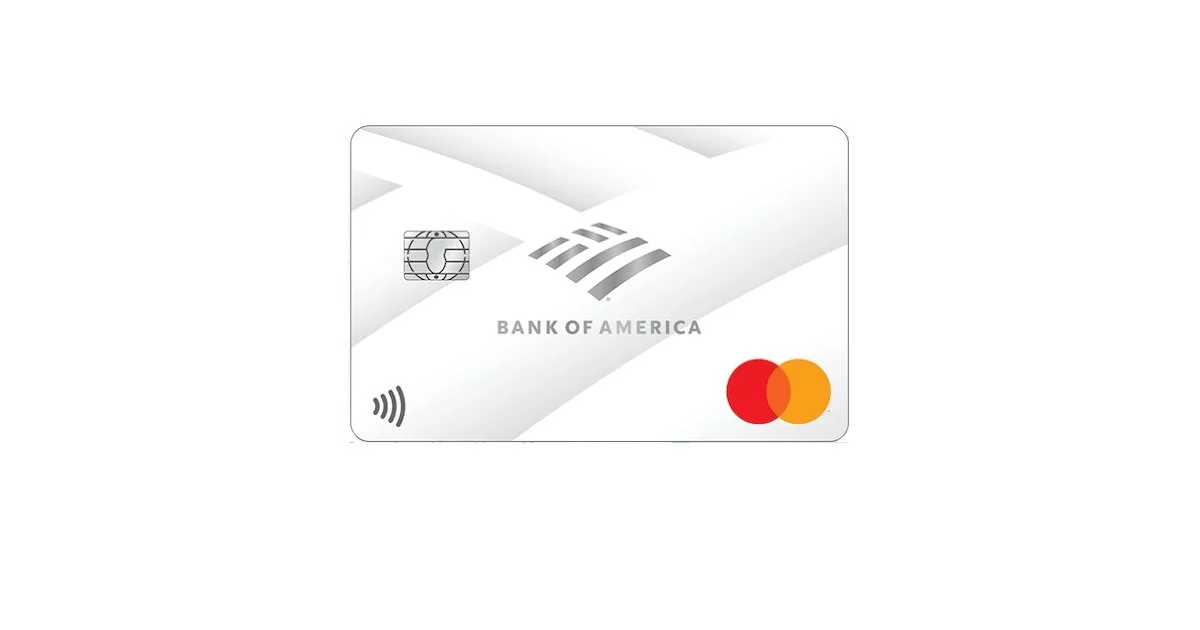Credit Cards and Mindful Spending: How to Avoid Impulsive Consumerism

Understanding the Importance of Mindful Spending
In a world where rapid purchases are just a credit card swipe away, many individuals find themselves grappling with impulsive spending habits. While credit cards undeniably provide a convenient method for accessing funds, they can also lead to overspending and accumulating debt. This makes the practice of mindful spending increasingly important. Mindful spending encourages individuals to reflect on their purchasing decisions and prioritize financial well-being.
Recognizing Signs of Consumerism
Consumerism often sneaks into our daily lives in ways we may not even notice. It can manifest through:
- Unplanned expenses during shopping sprees: Have you ever gone to the store for one item but left with a cart full of goods? This is a classic example of how easy it is to get carried away when tempted by sales or marketing strategies.
- Using credit cards to buy non-essentials: It might feel harmless to treat yourself to that new gadget or stylish clothing, but doing so without careful consideration can strain your budget.
- Feeling pressured to keep up with trends: Social media often showcases the latest trends, leading to a desire to purchase what we see others enjoying, even if it’s not practical for us.
Strategies for Mindful Spending
To combat these tendencies and build a sustainable financial future, implementing strategies for mindful spending is crucial. Here are some practical tips to help guide your spending habits:
- Set a budget and stick to it: Start by identifying your monthly income and necessary expenses, such as rent or groceries. Allocate a specific amount for discretionary spending and make it a rule to not exceed this budget.
- Evaluate each purchase critically before committing: Before making a purchase, ask yourself if it is a want or a need. Will it add value to your life, or is it simply an impulse buy? Giving yourself a 24-hour rule before deciding to buy can often help with this evaluation.
- Designate which purchases are needs versus wants: Create two lists: one for essentials like food, healthcare, and housing, and another for non-essentials such as entertainment or luxury items. This can help clarify what truly warrants your spending.
The Road to Financial Wellness
Embracing these practices not only fosters a healthier relationship with credit and spending but also empowers individuals to regain control over their finances. By understanding your spending habits and implementing mindful strategies, you can make choices that align with your long-term financial goals. Over time, these efforts will pave the way for greater financial stability and overall well-being, allowing you to enjoy life without the burden of unnecessary debt.
DISCOVER MORE: Click here to find out how
Implementing Mindful Spending Practices
To cultivate an environment that favors mindful spending, it is essential to implement effective practices that help mitigate impulsive purchasing behaviors. These strategies not only promote financial responsibility but also enhance your overall well-being by allowing you to spend in alignment with your values and priorities.
Establishing Credit Card Boundaries
One of the first steps in promoting mindful spending is to create clear boundaries around your credit card use. Credit cards can be incredibly useful tools, but without limits, they can lead to reckless financial behavior. Consider the following strategies:
- Limit the number of credit cards: Having multiple credit cards can make it tempting to overspend. Consider consolidating your credit accounts to one or two cards that offer beneficial rewards, reducing the chances of impulse purchases.
- Set spending limits on each card: Similar to your overall budget, designate specific limits for each credit card. This can be particularly effective if you allocate different cards for different types of expenses, like groceries or entertainment.
- Utilize alerts and notifications: Most credit card companies offer tools to alert you when you are nearing your spending limits. Setting these notifications helps maintain awareness and accountability in real-time.
Identifying Emotional Triggers
To effectively combat impulsive consumerism, it is crucial to become aware of the emotional triggers that lead to unplanned spending. Often, emotional responses such as stress, boredom, or even excitement can prompt individuals to reach for their credit cards without thinking. By recognizing these patterns, you can create healthier coping mechanisms. Consider the following approaches:
- Practice journaling: Keep a spending journal where you write down not only your purchases but also the feelings associated with them. This reflection can help identify patterns and understand your emotional triggers.
- Engage in alternative activities: Replace shopping with other fulfilling activities that can help alleviate the emotions driving your spending. For instance, taking a walk, reading a book, or pursuing hobbies can serve as healthier outlets for stress or boredom.
- Seek support: Share your goals with friends or family who can help keep you accountable. Sometimes, simply discussing your spending habits can provide perspective and discourage impulsive purchases.
By integrating these mindful spending practices into your daily life, you will not only reduce impulsive consumerism but also foster a more positive relationship with your finances. The goal is to spend consciously and intentionally, ensuring that every credit card transaction contributes meaningfully to your financial health and personal fulfillment.
DISCOVER MORE: Click here to learn about the impact of cryptocurrencies on wealth management
Building a Healthy Mindset Towards Money
Developing a healthy mindset towards money is a fundamental component of practicing mindful spending. This perspective not only aids in avoiding impulsive purchases but also strengthens your overall financial literacy. By adopting certain attitudes and habits, you can change the way you view credit cards and debt, transforming them from sources of anxiety into tools for financial empowerment.
Reframing Your Relationship with Money
Your perception of money significantly influences your spending behaviors. To foster mindfulness, consider reframing how you view your finances:
- View credit as a tool, not a crutch: Understand that credit cards are meant to facilitate transactions, not to be relied upon as a means of income. For example, using a credit card for convenience or rewards is beneficial, but compensating for insufficient income or purchasing items you cannot afford is detrimental.
- Focus on the long-term: When considering a purchase, ask yourself how it fits into your overall financial goals. Will this new gadget be a need in a few months? If the purchase offers little long-term value, it may be prudent to reconsider.
- Develop gratitude for what you have: Regularly practice gratitude by reflecting on your current possessions and experiences. This can serve to diminish the desire for unnecessary purchases and elevate your appreciation for what you own.
Creating and Maintaining a Spending Plan
An actionable, well-structured spending plan is crucial for promoting mindful spending. Establishing a budget can help you align your purchases with your priorities and values:
- Establish a realistic budget: Calculate your monthly expenses and income to create a budget that reflects your true financial situation. Allocate funds for essentials and include a discretionary category for entertainment and occasional splurges, keeping in mind that this should not exceed your total budget.
- Incorporate a “cooling-off” period: If you’re tempted to make an unplanned purchase, implement a strategy where you wait 24-48 hours before deciding to follow through. Often, this brief delay can help you evaluate the necessity of the purchase, reducing impulsivity.
- Review your budget regularly: Consistently monitoring and adjusting your budget is essential for staying on track. Monthly reviews can help you identify patterns in your spending, allowing you to adapt your behaviors as needed to avoid falling back into impulsive habits.
Utilizing Technology Wisely
In our digital world, technology can play a significant role in promoting mindful spending. There are numerous apps and tools available to help you manage your finances effectively:
- Budgeting apps: Consider utilizing budgeting applications like Mint or You Need a Budget (YNAB) to keep track of your expenses and visualize where your money goes. By categorizing your spending, these apps can highlight areas where you can cut back.
- Price comparison tools: Before making a purchase, use price comparison websites or apps to ensure you are getting the best deal possible. This not only saves money but also reinforces a habit of thoughtful decision-making.
- Online shopping reminders: If online shopping is a weakness, consider setting reminders to help maintain your scheduled shopping days and avoid impulsively browsing for items you don’t need.
Incorporating these techniques into your financial routine can significantly shift your spending habits, making them more intentional and less impulsive. With a clear mindset, a structured plan, and the right tools, you can navigate your credit card use confidently and responsibly, paving the way towards a healthier financial future.
LEARN MORE: Click here to ensure your financial legacy
Conclusion: Embracing Mindful Spending for Financial Well-Being
As we navigate the complexities of modern financial life, mindful spending emerges as a critical practice in combating impulsive consumerism and making informed choices about credit card use. By reshaping our relationship with money and viewing credit as a tool rather than a necessity, we can cultivate a healthier financial mindset. This shift encourages us to assess purchases critically, aligning them with our long-term goals and values.
Creating a structured spending plan is essential in this journey. A realistic budget, combined with periodic reviews and a cooling-off period for impulsive buys, empowers us to resist instant gratification. Moreover, leveraging technology through budgeting apps and price comparison tools aids both in tracking expenses and making thoughtful purchasing decisions.
Ultimately, the key to avoiding impulsive consumerism lies in intentionality. By practicing gratitude for what we already possess and consistently evaluating our financial habits, we can foster a sense of contentment that diminishes the urge to spend impulsively. In doing so, we can transform our financial future, enjoying the benefits of responsible credit card usage and a more mindful approach to spending. Embrace these strategies and watch how they positively impact not only your finances but also your overall well-being.


